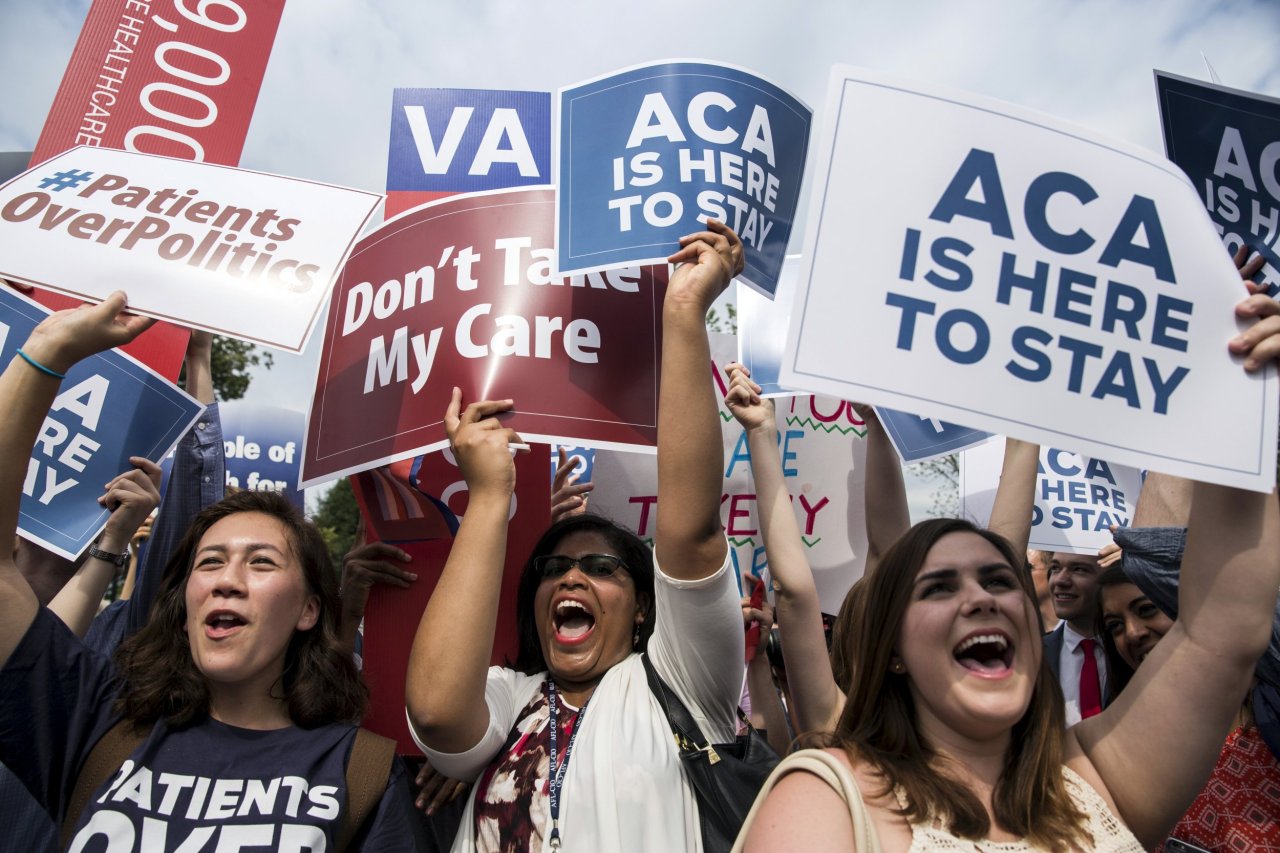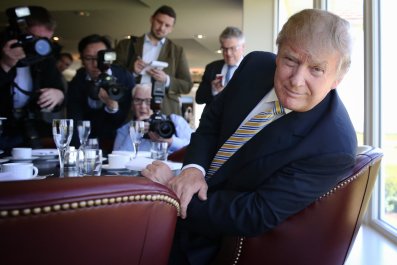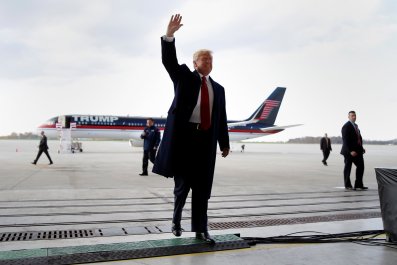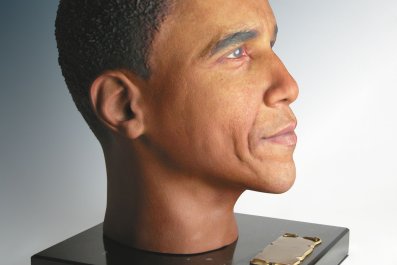Vice President Joe Biden put it best: "This is a big fucking deal." His blunt appraisal was picked up by a microphone at the 2010 ceremony where President Barack Obama signed the Affordable Care Act, or ACA. The law was the biggest step toward national health insurance in the United States since the enactment of Medicare in 1965, and Obama signed it with 22 pens, most of them distributed as souvenirs to beaming Democratic members of Congress who stood nearby applauding.
The ACA and many of the biggest achievements of Obama's eight years in office are now at risk. Donald Trump, the president-elect, has repeatedly vowed to "repeal and replace" Obamacare and napalm the Democrat's policies on immigration, the environment and Iran, among other things. With Republicans now controlling Congress, Trump is in a good position to get most of what he wants. But it will be take more than just his signature. Some parts of Obama's legacy will fall more easily than others, illustrating not only how Washington works but also that change can come slowly, even after a political revolution like the one Trump now heads.
Obama had an enormous Democratic majority in Congress when he was elected in 2009, and he used it to push through important laws like the ACA, the stimulus package and the Dodd-Frank financial reform bill. But after Republicans took over the House in 2010 and gained in the Senate, the president increasingly relied on executive actions that allowed him to avoid Capitol Hill. All presidents do this, but Obama did it with some very high-profile issues. If he hadn't, he would have been stalemated. He fought for climate change when his Environmental Protection Agency ruled that greenhouse gases were under the agency's purview—a regulation that was finalized in 2015 and allowed it to all but stop the opening of new coal plants. Frustrated by Congress's inaction on immigration reform, Obama turned to executive orders such as one that directed federal officials to deport those with serious criminal records and delay action against families. All that can be revoked minutes after Trump is sworn in on January 20. "Many of the Obama administration's accomplishments have clay feet," says Jonathan Turley, a George Washington University law professor, who has testified against some of the administration's executive actions.
Obamacare is going to be the most cumbersome legislation for Trump to repeal for both for political and parliamentary reasons. It's a sprawling piece of legislation that includes everything from a tax on medical devices to a dramatic expansion of Medicare—the federal health insurance program for lower-income Americans — to mandates that allow parents to keep their kids on their family's health insurance until they're age 26.
As a matter of legislative maneuvering, Trump and his congressional allies can repeal the parts of the law that deal with taxes and spending with simple majority votes. But eliminating other parts will require overcoming a filibuster in the Senate, where Democrats can thwart Trump's will. Overcoming a filibuster is not easy, and it could delay Trump's evisceration of the ACA for some time, perhaps months.
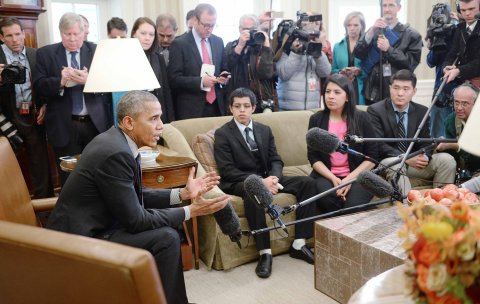
Some 20 million Americans now have health insurance because of the ACA. To kick them off without an alternative would present a huge political problem for Trump and the GOP. And the ACA includes some very popular provisions that can't easily be saved without keeping less popular parts of law. Most notable: the section of the law that forbids insurance companies from denying coverage if you have a pre-existing condition. Three days after he won the election, Trump told The Wall Street Journal he wants to keep it. But this provision is expensive for the insurance industry. When the ACA was being hammered out, the insurance companies were willing to grant coverage to even the very sick if there was an individual mandate — a requirement that everyone buy in. That part of the law is now unpopular because there's a fine if you refuse to buy insurance. Republicans fought that all the way to the Supreme Court, but they lost, and insurance companies need this provision because it brings the young and healthy into the insurance pool. In fact, they want the fines to be higher to get more people to buy insurance, because some folks are content to pay the fine. If Trump wants to keep the popular portions of the law, he will have to find a way to make it pay for insurers. One option may be to keep the pre-existing coverage rule but allow insurance companies to sell low-quality plans with very high deductibles, thin coverage and outrageous premiums forbidden under the ACA.
Compared with the tussles Trump will face in dismantling the ACA, his administration may have an easier time throwing out the EPA regulation on greenhouse gases, barring a defeat in the courts. If Trump is successful, it would be huge win for the coal industry. And forget about the much-celebrated Paris accords on climate change. Trump can choose not to comply with them, even the provisions mandating the U.S. meet certain metrics for discharging of greenhouse gases. While the Democrats might take the White House back from Trump in 2020, critics say four years is long enough to do considerable damage on climate change. "You can't unmelt a glacier," says Jonathan Chait, author of Audacity, a forthcoming book on Obama's legacy. "What Trump does [on the environment] is essentially irreversible."
Trump will have his greatest and quickest success repealing Obama's immigration policies. Obama's most notable executive action is the Deferred Action for Childhood Arrivals program, or DACA. This 2012 policy, which the Homeland Security department has enforced, allows those who arrived in the U.S. as children of undocumented migrants to stay if they keep getting renewable permits. Trump can easily kill that program, and since the people enrolled in it have been regularly registering with the government, it won't be hard to find and deport them, as opposed to those who snuck into the country and never registered.
Another easy target for Trump is Obama's hard-fought and much-criticized Iranian nuclear deal. It's not a binding treaty ratified by Congress, so President Trump can ignore many of its terms, perhaps to the dismay of America's allies. The problem for Trump: If he wants to re-impose economic sanctions on Tehran, he's going to have to go back to the co-signers — the United Kingdom, France, Germany, Russia, China and the European Union, to reimpose them. Good luck with that.
Throughout the campaign, Trump said he'd be able to make changes "so quickly it will make your head spin." That's a "big league" exaggeration, to use another Trumpism. But if you're worried about reversing climate change or fearing deportation, you're right to be concerned. Meanwhile, some of Obama's other signature achievements, namely how he rescued the economy after the Great Recession and saved the auto industry, will stand. The laws he signed in those efforts will be harder to scuttle. But the rest of his legacy is now on an endangered species list, and Trump has some big guns.



